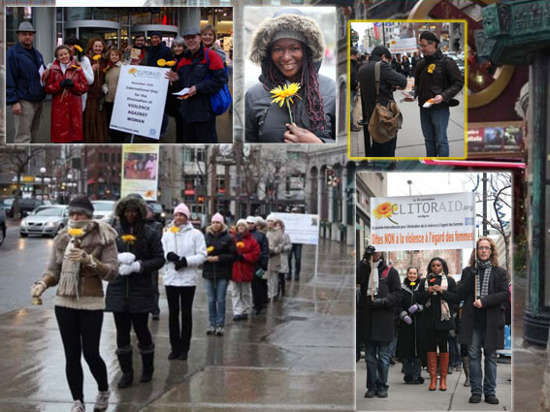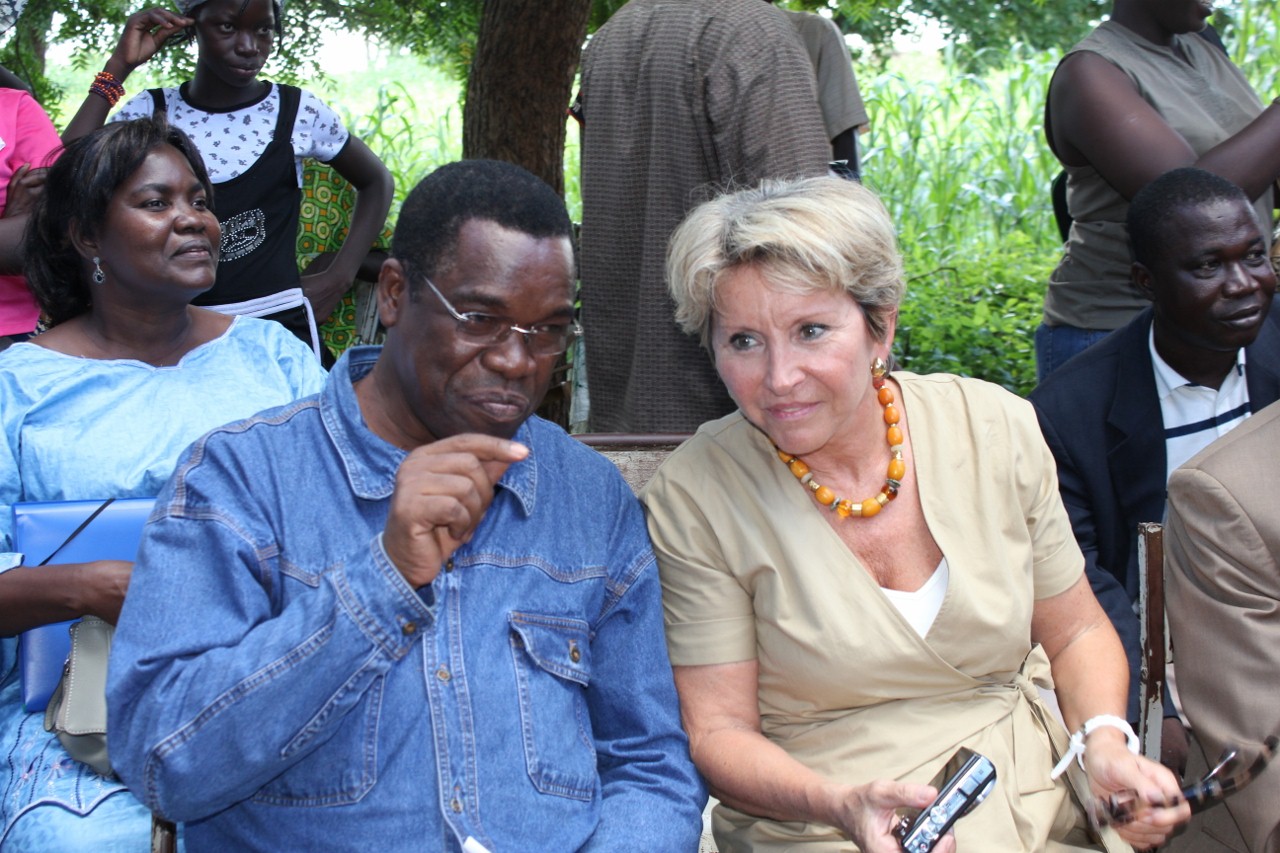Clitoraid-Canada "silent marches" in support of International day of the elimination of violence against women on november 25th
تشرين الثاني 15 2012, تصنيف: Clitoraid NEWS
November 25th the International day for the elimination of violence against women adopted the General Assembly of UNO December 17, 1999.
Among the types of the violence against women, the most violent is undoubtedly the excision: "female genital mutilation" (FGM).
A study made public in October 2007, by the "Institut national d'études démographiques" (INED), indicates that between 100 and 140 millions women underwent sexual mutilation in the world. Let us point out the many medical and psychological consequences related to these practices - infections, sterility, childbirth difficulties, anxiety and depression.
Clitoraid, a non-profit organization world wide joins all national and international organizations in supporting this international day for the elimination of violence against women.
Some "silent marches" will take place Sunday November 25th, 2012.
Toronto at 2PM = Corner of North West Yonge St & Queen St
Ottawa at 1pm = Corner of Rideau street and Cumberland
Montreal at 1pm = Square Phillips - in front of La Baie
Quebec at 1:30pm = Place Youville at the St-John door
Clitoraid supports african women in recovering their right to pleasure, dignity and femininity.
Join us !
Among the types of the violence against women, the most violent is undoubtedly the excision: "female genital mutilation" (FGM).
A study made public in October 2007, by the "Institut national d'études démographiques" (INED), indicates that between 100 and 140 millions women underwent sexual mutilation in the world. Let us point out the many medical and psychological consequences related to these practices - infections, sterility, childbirth difficulties, anxiety and depression.
Clitoraid, a non-profit organization world wide joins all national and international organizations in supporting this international day for the elimination of violence against women.
Some "silent marches" will take place Sunday November 25th, 2012.
Toronto at 2PM = Corner of North West Yonge St & Queen St
Ottawa at 1pm = Corner of Rideau street and Cumberland
Montreal at 1pm = Square Phillips - in front of La Baie
Quebec at 1:30pm = Place Youville at the St-John door
Clitoraid supports african women in recovering their right to pleasure, dignity and femininity.
Join us !



 English
English Français
Français Italiano
Italiano 日本語
日本語 한국어
한국어 Português
Português Español
Español





